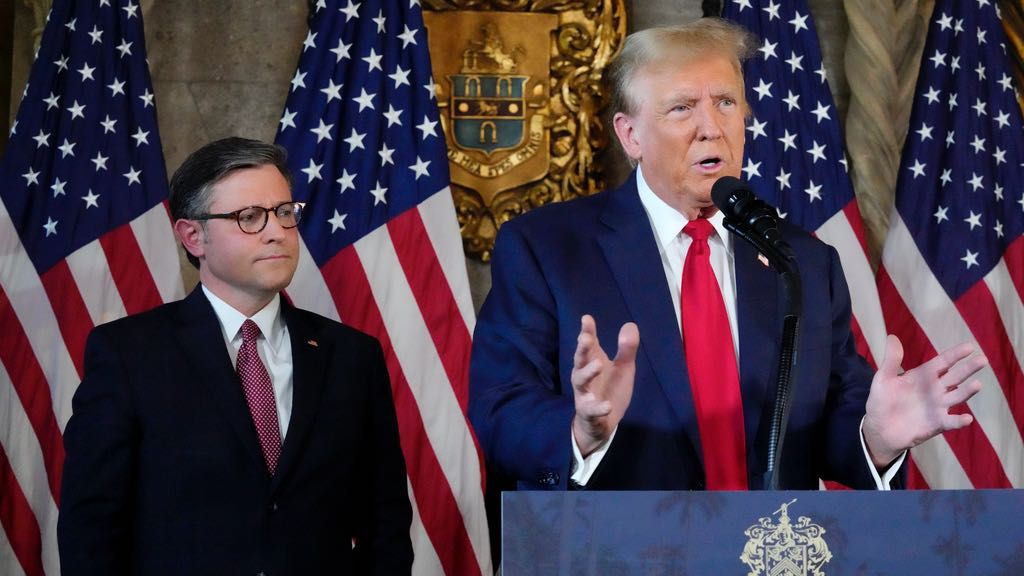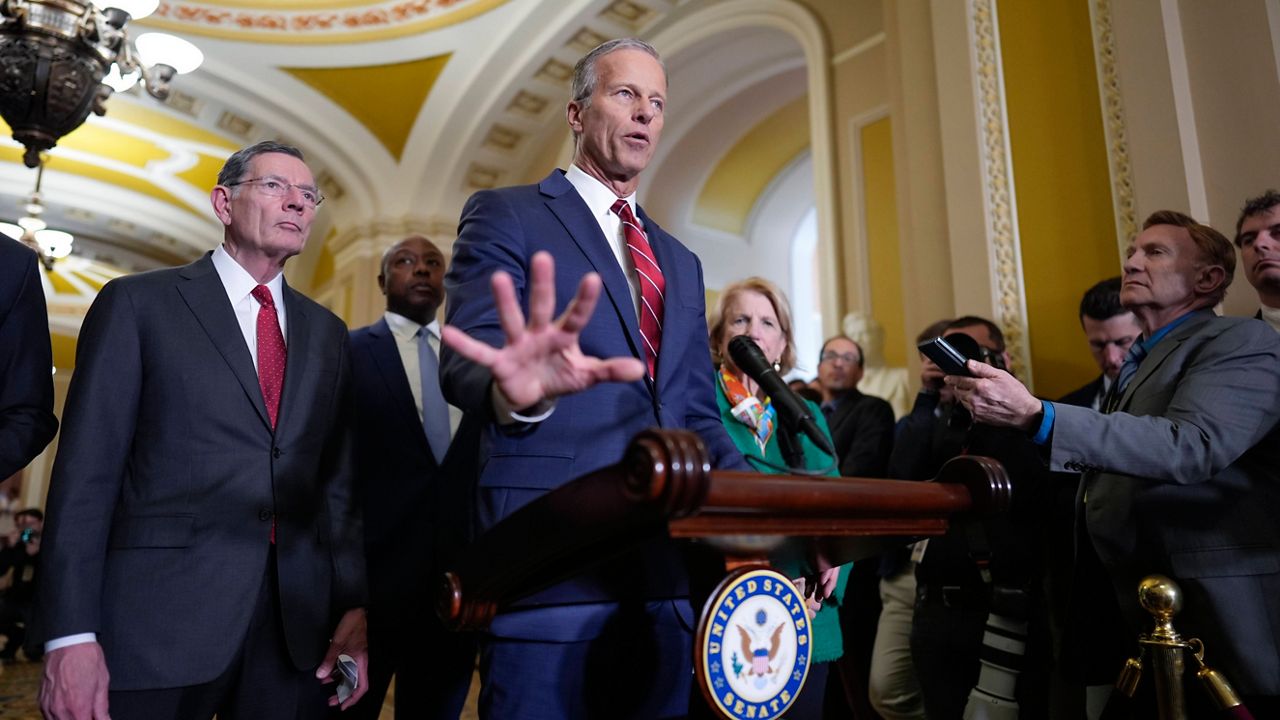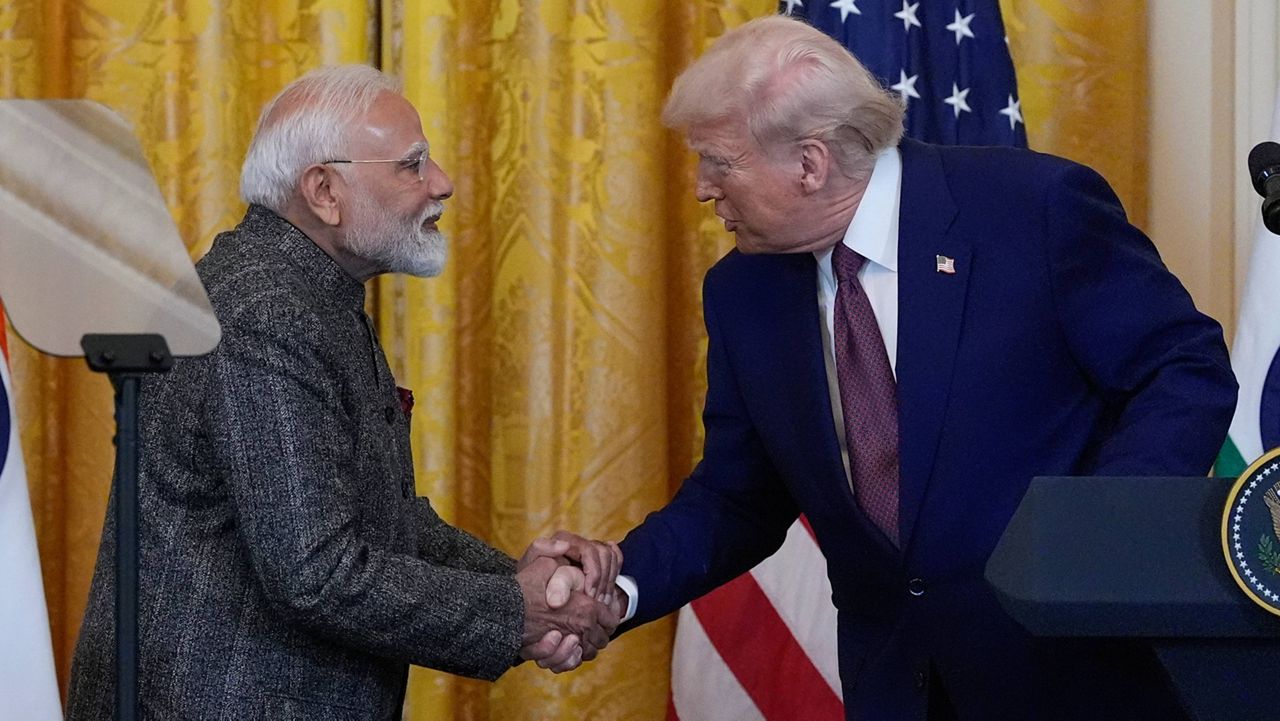Louisiana Republican Rep. Mike Johnson was elected speaker of the House on Friday on the first ballot after two GOP lawmakers who initially defected changed their votes in his favor.
What You Need To Know
- Louisiana Republican Rep. Mike Johnson was elected speaker of the House on Friday on the first ballot after two GOP lawmakers who initially defected changed their votes in his favor
- In the final vote tally, Johnson earned the votes of 218 of the 219 Republican members; all Democratic members present unified around House Minority Leader Hakeem Jeffries, D-N.Y., to give him 215 votes.
- The House remained in limbo for nearly an hour waiting to see if any of the three defectors would flip to give Johnson the win
- Senators were sworn in by Vice President Kamala Harris on Friday just after noon
In the final vote tally, which became official just after 2:30 p.m. Eastern, Johnson earned the votes of 218 of the 219 Republican members. In an expected move, one Republican, Rep. Thomas Massie, R-Ky., voted for someone other than Johnson, throwing his weight behind House Majority Whip Rep. Tom Emmer, R-Minn., instead.
All Democratic members present unified around House Minority Leader Hakeem Jeffries, D-N.Y., to give him 215 votes.
The House remained in limbo for nearly an hour waiting to see if any of the three defectors – a threshold that was enough to send the speaker vote to a second ballot – would flip to give Johnson the win.
Eventually, Republican Reps. Ralph Norman of South Carolina and Keith Self of Texas, who first voted for Reps. Jim Jordan of Ohio and Bryon Donalds of Florida, respectively, returned to change their votes to support Johnson.
During the roll call vote on the House floor, several GOP members who had been noncommittal on backing Johnson in the lead-up to Friday did not vote at all when their names were called, initially keeping the chamber on its toes. After all the names had been read once, they registered their votes for Johnson.
Speaking from the House floor after his victory, Johnson declared that the 119th Congress has the “potential to be one of the most consequential … in the history of this great nation.”
“So long as we work together, we do the right thing and we put America first,” he said.
The speaker cited inflation, cutting the size and scope of the federal government and, first and foremost, the border as top priorities.
"This is a powerful new coalition of our country,” he said. “It's a coalition that insists that we purge the policies of America last and we bury them in the graveyard of history's mistakes because it was a big mistake. To that end, this Congress will renounce the status quo, and we will listen to the voices of the people.”
Despite the delay and initial uncertainty, Johnson’s ultimate success on the first ballot marked a much different scenario than the last time a new Congress convened in January 2023. That year, former Speaker Kevin McCarthy, R-Calif., went through 15 rounds of voting over four days before securing the gavel.
He was ousted nine months later, leading to Johnson’s ascension to the job in October 2023.
Johnson this week, including Friday morning before the vote, insisted he would “get it done” on the first ballot. But Massie’s pledge to vote against Johnson and a handful of other Republican lawmakers expressing doubt in the speaker over the last few weeks, particularly after his handling of a funding bill to avoid a government shutdown, stirred concerns the chamber could see another McCarthy-esque situation.
President-elect Donald Trump threw his weight behind Johnson on Monday, offering his “Complete & Total Endorsement” of the speaker in a post on social media. He later reiterated his support to reporters at a New Year’s Eve event at his Florida club, Mar-a-Lago, adding he would call reluctant members “If necessary” to lobby for Johnson.
While McCarthy had to haggle with his holdouts in 2023 and make concessions, including giving just one member the power to trigger a vote to oust him, Johnson on Friday morning maintained he was not making deals to get the gavel.
The House rules package for the new Congress unveiled by GOP leaders Wednesday increases the number of lawmakers who can trigger a vote to oust the speaker from one to nine.
With Johnson officially securing the gavel, both chambers can now begin their work for the 119th Congress. Lawmakers are set to certify Trump’s election victory Monday ahead of the president-elect’s inauguration on Jan. 20.
Senators were sworn in by Vice President Kamala Harris on Friday just after noon. The upper chamber has 99 members until West Virginia Gov. Jim Justice, who was elected in November to represent his state in the Senate, leaves his post as governor later this month.
Republicans won a trifecta in Washington in November, meaning they will control both chambers of Congress and the White House.











